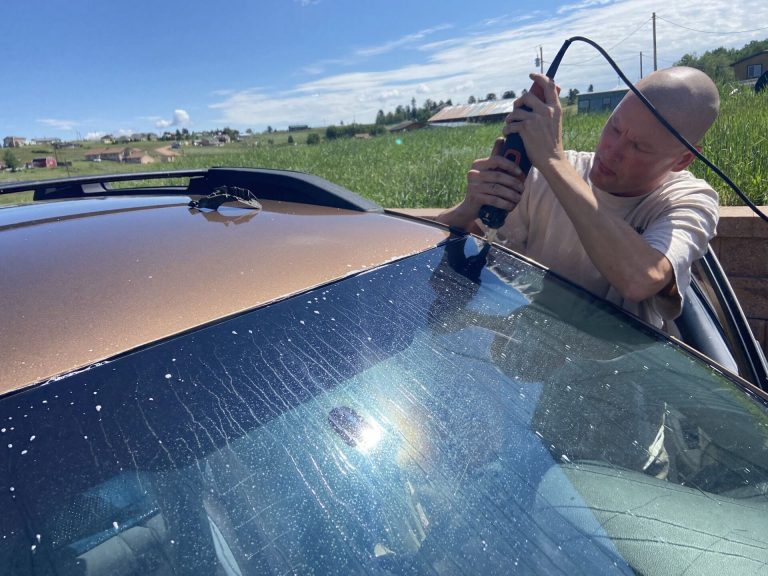BMW 325iX Emission Control System Inspect Cost
Between $44 and $56
The average cost for a BMW 325iX Emission Control System Inspect is between $44 and $56. The average cost for a BMW 325iX Emission Control System Inspect is between $44 and $56. Labor costs are estimated between $44 and $56. This range does not include taxes and fees, and does not factor in your unique location. Related repairs may also be needed. For a more accurate estimate based on your location, use our Fair Price Estimator below. This range does not include taxes and fees, and does not factor in your unique location. Related repairs may also be needed.
Understanding the BMW 325iX Emission Control System Inspect Cost
Ensuring your BMW 325iX is running cleanly and efficiently is paramount, not only for environmental compliance but also for optimal vehicle performance. A critical part of this is the emission control system. When it’s time for an inspection, understanding the potential BMW 325iX Emission Control System Inspect Cost is essential for budgeting and planning. This guide will break down the factors influencing this cost, the diagnostic process, and how you can potentially save money on these vital checks.
Detailed Cost Breakdown
The cost of a BMW 325iX Emission Control System Inspect can vary based on several key components. While the inspection itself is generally straightforward, the underlying factors can significantly influence the final price.
The BMW 325iX Emission Control System Inspect Cost can fluctuate significantly depending on your geographic location. Major metropolitan areas with higher costs of living often see higher labor rates. Conversely, rural areas might have lower labor costs but potentially fewer specialized BMW service centers. For instance, a dealership in a high-cost-of-living city might charge more for labor than an independent shop in a lower-cost region.
If your inspection reveals a faulty component requiring replacement, the choice between Original Equipment Manufacturer (OEM) and aftermarket parts can impact the overall cost.
- OEM Parts: These are parts manufactured by BMW or by a supplier to BMW's specifications. They are guaranteed to fit and function correctly, but they typically come with a higher price tag.
- Aftermarket Parts: These are parts made by companies other than BMW. They can be a more budget-friendly option, but quality and fit can vary. It’s crucial to choose reputable aftermarket brands.
For emission control components, using OEM parts is often recommended to ensure precise operation and compliance, though aftermarket options can be viable for less critical components if sourced carefully.
- OEM Parts: These are parts manufactured by BMW or by a supplier to BMW's specifications. They are guaranteed to fit and function correctly, but they typically come with a higher price tag.
- Aftermarket Parts: These are parts made by companies other than BMW. They can be a more budget-friendly option, but quality and fit can vary. It’s crucial to choose reputable aftermarket brands.
Factors Affecting Cost
Several variables can influence the final BMW 325iX Emission Control System Inspect Cost, extending beyond the basic inspection fee.
As your BMW 325iX accumulates mileage, components within the emission control system are subject to wear and tear. Higher mileage vehicles are more likely to have components that have reached the end of their service life, potentially leading to more diagnostic trouble codes and the need for repairs beyond a simple inspection. This increased likelihood of component failure can drive up the overall cost.
As mentioned earlier, your physical location plays a significant role. Labor rates vary drastically between states and even between neighboring towns. The cost of doing business for repair shops – rent, utilities, and local regulations – all contribute to the final price you pay for an inspection and any subsequent repairs.
An emission control system inspection might uncover underlying issues that require more extensive repairs. Common related repairs include:
- OEM Parts: These are parts manufactured by BMW or by a supplier to BMW's specifications. They are guaranteed to fit and function correctly, but they typically come with a higher price tag.
- Aftermarket Parts: These are parts made by companies other than BMW. They can be a more budget-friendly option, but quality and fit can vary. It’s crucial to choose reputable aftermarket brands.
The cost of these additional repairs will, of course, add to the initial inspection cost.
While not as pronounced as with some other automotive services, you might notice minor seasonal fluctuations. For instance, during periods of increased vehicle maintenance demand (like before holidays or during certain weather seasons), shops might be busier, potentially impacting appointment availability and, in some cases, pricing. However, for a routine inspection, this impact is usually minimal.
Diagnostic & Repair Process
Understanding how emission control systems are diagnosed and inspected can demystify the process and help you appreciate the BMW 325iX Emission Control System Inspect Cost.
Diagnosing emission control system problems typically begins with a visual inspection and then moves to electronic diagnostics.
- OEM Parts: These are parts manufactured by BMW or by a supplier to BMW's specifications. They are guaranteed to fit and function correctly, but they typically come with a higher price tag.
- Aftermarket Parts: These are parts made by companies other than BMW. They can be a more budget-friendly option, but quality and fit can vary. It’s crucial to choose reputable aftermarket brands.
An emission control system inspection is a thorough check of all components designed to reduce harmful emissions. The process generally involves:
- OEM Parts: These are parts manufactured by BMW or by a supplier to BMW's specifications. They are guaranteed to fit and function correctly, but they typically come with a higher price tag.
- Aftermarket Parts: These are parts made by companies other than BMW. They can be a more budget-friendly option, but quality and fit can vary. It’s crucial to choose reputable aftermarket brands.
We strongly recommend addressing any emission system issues promptly. The emission control system is intricately linked with your engine's overall performance and fuel efficiency. Ignoring minor issues can lead to more significant problems, potentially causing damage to other engine components or the catalytic converter, which is a costly repair. Early detection and repair will not only keep your BMW 325iX running smoothly but also prevent more expensive repairs down the line and ensure you pass any required emissions tests.
When your BMW 325iX has emission control system issues, several signs might become apparent:
- OEM Parts: These are parts manufactured by BMW or by a supplier to BMW's specifications. They are guaranteed to fit and function correctly, but they typically come with a higher price tag.
- Aftermarket Parts: These are parts made by companies other than BMW. They can be a more budget-friendly option, but quality and fit can vary. It’s crucial to choose reputable aftermarket brands.
While some aspects of emission system checks are DIY-friendly, a comprehensive inspection and diagnosis are best left to professionals.
- OEM Parts: These are parts manufactured by BMW or by a supplier to BMW's specifications. They are guaranteed to fit and function correctly, but they typically come with a higher price tag.
- Aftermarket Parts: These are parts made by companies other than BMW. They can be a more budget-friendly option, but quality and fit can vary. It’s crucial to choose reputable aftermarket brands.
FAQ Section
How much does a BMW 325iX Emission Control System Inspect cost?
The average cost for a BMW 325iX Emission Control System Inspect is between $44 and $56. This typically covers the labor involved in a diagnostic check.
Can I drive with this problem?
It depends on the severity of the emission control system issue. If your check engine light is on, it's generally advisable to have it inspected soon. While you may be able to drive your vehicle, a malfunctioning system can lead to reduced fuel efficiency, poor performance, and potential damage to other components, including the catalytic converter. It may also cause your vehicle to fail an emissions test.
How long does a BMW 325iX Emission Control System Inspect take?
A standard emission control system inspection typically takes between 30 minutes to 1 hour, depending on the complexity of the issue and the diagnostic methods required. If additional repairs are identified, the time will increase accordingly.
What causes this issue?
Issues with the emission control system can be caused by a variety of factors, including worn-out sensors (like oxygen sensors), clogged or faulty catalytic converters, leaking EVAP system components (like purge valves or vent solenoids), vacuum leaks from cracked hoses, or malfunctioning EGR (Exhaust Gas Recirculation) valves. Regular maintenance and timely attention to warning signs can help prevent many of these issues.
Cost-Saving Strategies
Minimizing the BMW 325iX Emission Control System Inspect Cost doesn't have to mean compromising on quality. Here are some effective strategies:
Before committing to a repair shop, gather quotes from at least two or three reputable service centers. This allows you to compare pricing for both the inspection and any potential repairs, ensuring you get competitive rates.
While emission system issues should be addressed promptly, consider the timing of non-urgent repairs. If your inspection reveals a minor issue that doesn't immediately impact drivability or emissions testing, you might be able to schedule the repair during a less busy period for your chosen mechanic, potentially leading to more flexible scheduling.
Check if your BMW 325iX is still under any manufacturer warranty or an extended service contract. Emission control components often have longer warranty periods than other parts. If the issue is covered, the inspection and repair costs could be significantly reduced or even eliminated.
As discussed, a full emission control system inspection often requires specialized tools and expertise. However, if the check engine light is on, a simple DIY first step is to check your gas cap. If it's loose, tighten it, drive for a bit, and see if the light goes off. For anything beyond this, professional diagnosis is recommended.
Next Steps:
Don't delay in addressing any concerns you have about your BMW 325iX's emission control system. Schedule an inspection with a trusted mechanic to ensure your vehicle remains compliant, efficient, and reliable. Use our Fair Price Estimator tool to get a localized estimate for your BMW 325iX Emission Control System Inspect Cost and find qualified technicians in your area.

